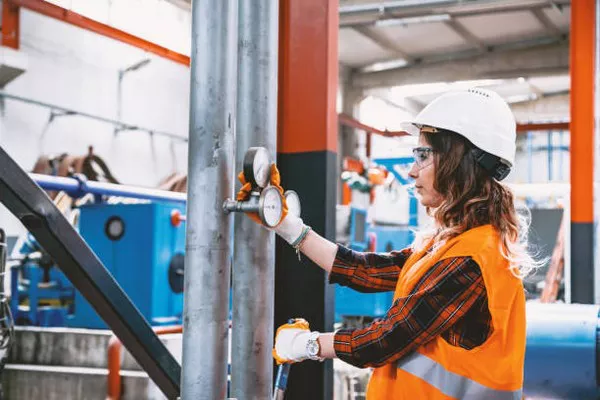Heat pumps are indispensable components in modern HVAC systems, providing efficient heating and cooling solutions for residential and commercial spaces. At the heart of these systems lies the compressor, a crucial element responsible for transferring heat and maintaining optimal temperature levels. Understanding the lifespan of a heat pump compressor is essential for homeowners, HVAC professionals, and building managers alike, as it directly impacts system performance, maintenance costs, and overall efficiency.
In this article, we delve into the factors influencing the longevity of heat pump compressors, explore common issues that can affect their lifespan, and offer practical tips for maximizing durability and efficiency.
Factors Affecting Heat Pump Compressor Lifespan:
Quality of Manufacturing:
The quality of components and manufacturing processes significantly influences the lifespan of a heat pump compressor. Compressors constructed with high-quality materials and precision engineering tend to have longer operational lifespans compared to those built with inferior materials or manufacturing standards. When purchasing a heat pump system, it’s essential to invest in reputable brands known for their commitment to quality and reliability.
Maintenance Practices:
Regular maintenance is vital for prolonging the lifespan of a heat pump compressor. Proper maintenance includes routine inspections, cleaning, lubrication, and timely repairs. Neglecting maintenance tasks can lead to accelerated wear and tear, reduced efficiency, and premature compressor failure. Homeowners should adhere to manufacturer recommendations and schedule professional maintenance checks at least once a year to ensure optimal performance and longevity.
Operating Conditions:
The operating conditions in which a heat pump compressor functions play a significant role in determining its lifespan. Factors such as ambient temperature, humidity levels, frequency of use, and workload impact the compressor’s workload and stress levels. Heat pumps operating in extreme climates or subjected to frequent cycling may experience higher levels of wear, requiring more frequent maintenance and potentially shorter lifespans. Proper sizing and installation of the heat pump system according to the specific needs of the space can help mitigate excessive wear and extend compressor life.
Environmental Factors:
Environmental factors such as air quality, exposure to corrosive substances, and proximity to pollutants can also affect the longevity of heat pump compressors. Exposure to saltwater, chemicals, or airborne contaminants can accelerate corrosion and degrade compressor components over time. Proper placement and protective measures, such as corrosion-resistant coatings or regular cleaning, can help mitigate these risks and extend the compressor’s lifespan.
Common Issues Impacting Compressor Lifespan:
Refrigerant Leaks:
Refrigerant leaks are a common issue in heat pump systems that can compromise compressor performance and longevity. Low refrigerant levels place additional strain on the compressor, leading to increased energy consumption, overheating, and potential damage. Prompt detection and repair of refrigerant leaks are essential to prevent compressor failure and ensure optimal system performance.
Electrical Problems:
Electrical issues, such as voltage fluctuations, electrical surges, or faulty wiring, can damage the compressor and other system components. Overloading the compressor with excessive voltage or exposing it to electrical faults can cause internal damage, motor burnout, or compressor failure. Installing surge protectors, voltage regulators, and ensuring proper electrical connections can help safeguard the compressor against electrical issues.
Improper Installation:
Improper installation of heat pump systems can result in various performance issues and premature compressor failure. Incorrect sizing, inadequate airflow, improper refrigerant charging, and subpar installation practices can lead to excessive wear, reduced efficiency, and compressor damage. It’s crucial to enlist the services of qualified HVAC professionals for proper installation, ensuring adherence to manufacturer guidelines and industry best practices.
Lack of Maintenance:
Neglecting routine maintenance tasks is perhaps the most significant contributor to premature compressor failure. Dust buildup, refrigerant leaks, lubrication issues, and worn-out components can go unnoticed without regular inspections and maintenance checks. Implementing a comprehensive maintenance schedule and addressing any issues promptly can help extend the lifespan of the compressor and ensure reliable operation.
Tips for Maximizing Heat Pump Compressor Lifespan:
Schedule Regular Maintenance:
Establish a routine maintenance schedule and adhere to manufacturer recommendations for servicing your heat pump system. Professional inspections, cleaning, and lubrication can help identify and address potential issues before they escalate, prolonging the compressor’s lifespan and optimizing system performance.
Monitor Refrigerant Levels:
Keep an eye on refrigerant levels and promptly address any leaks or deficiencies. Low refrigerant levels place undue stress on the compressor and can lead to decreased efficiency and performance. Work with HVAC professionals to detect and repair leaks and ensure proper refrigerant charging.
Protect Against Environmental Hazards:
Shield the heat pump compressor from environmental hazards such as saltwater, chemicals, and pollutants that can accelerate corrosion and deterioration. Implement protective measures such as corrosion-resistant coatings, regular cleaning, and proper placement to mitigate these risks and extend the compressor’s lifespan.
Invest in Quality Equipment:
Choose reputable brands and high-quality equipment known for their durability and reliability. While upfront costs may be higher, investing in a quality heat pump system with a robust compressor can yield long-term savings through reduced maintenance, repair, and replacement costs.
Ensure Proper Installation:
Entrust the installation of your heat pump system to qualified HVAC professionals with experience and expertise in proper installation practices. Ensure that the system is sized, configured, and installed according to manufacturer guidelines and industry standards to maximize efficiency and longevity.
See Also What Are The Parts Of Compressor
Conclusion:
The lifespan of a heat pump compressor is influenced by various factors, including manufacturing quality, maintenance practices, operating conditions, and environmental factors. By understanding these factors and implementing proactive measures to protect and maintain the compressor, homeowners and building managers can maximize efficiency, minimize downtime, and extend the lifespan of their heat pump systems. Investing in quality equipment, adhering to regular maintenance schedules, and addressing issues promptly are essential steps in ensuring optimal performance and longevity for heat pump compressors.

